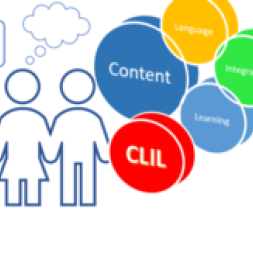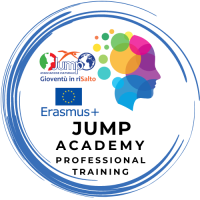
CLIL IS PRACTICE. A Training Course For The Creation Of Interactive Lessons In Foreign Languages
CLIL is increasingly being taken up by Ministries of Education as an innovative approach to teaching modern languages, as a motivating method for teaching subject areas or simply as a contribution to internationalization and the ideal of multilingualism. With this exponential growth, the lack of competent, trained CLIL teachers has become more evident.
Description
More info here https://associazionejump.it/course/clil-is-practice/
CLIL is growing across Europe as a modern, motivating way to teach both subjects and foreign languages. However, many teachers lack the full range of skills required-language proficiency, subject knowledge, and CLIL methodology. Our training goes beyond standard English courses: it’s led by native speakers and focuses on building transversal skills like creativity, ICT use, and motivation. The course is designed for teachers and educators who must now deliver part of their curriculum in English. It helps them gain confidence in organizing lessons, ensuring content quality, and using correct pronunciation and grammar. CLIL is more than teaching a subject in another language - it’s a real challenge and a major shift in teaching practice. Participants learn how to create interactive CLIL lessons, use ICT effectively, improve communication, and develop leadership through engaging, innovative teaching strategies.
Learning objectives
- Learning how to conduct interactive CLIL lessons
- Developing a smarter and more focused use of ICT in developing CLIL lessons
- Improving transversal competences like creativity, communication and more leadership in the use of motivational methods for a better students’ engagement
- Widening their perspectives about creating innovative lesson plans crossing all subjects
- Empowering their ability to use English technical language related to CLIL
Methodology & assessment
Furthermore, in line with the JUMP Academy method, our courses are based on a strategic balance between formal and non-formal education, indoor and outdoor education and the team takes care of a very important aspect of international mobility which is the intercultural learning which we develop with short excursions and facilitating the interaction with local partners, businesses and citizens of our territory. Each local context has its own economy so it’s always useful, in training programs, to get in contact with concrete examples (experiential learning and real based learning).
We always try to connect our learners to local teachers and students to cooperate in developing innovation and networking for future projects. If possible, inside the program, a morning is spent inside a local school, visiting, observing, and cooper
Materials, digital tools & other learning resources
JUMP provides, after the completion of the course, all presentations, training materials and any other digital and learning tools used during the training sessions. Furthermore, extra materials are sent if there are updates and new ones researched afterwards.
Certification details
At the end of the training, JUMP delivers a formal certificate of attendance and the team is at disposal to fill the Europass certification document according to the EU model template and other needed documents for reporting of the sending institution.
Our courses are in line with the Erasmus+ Quality standards for courses under Key Action 1 (learning mobility of individuals)
Pricing, packages and other information
-
Course package content:
In the course fee are included: organization, administration, trainers' costs and classes, further training/learning materials, certification, support of the team H24, photo-video reporting.
Extra costs are referred to logistics. JUMP is sending all the precise info when the participants or the Erasmus coordinator ask for information.
-
Additional information:Description of the services and activities included in the course package (such as accommodation, meals, transport) or available at extra cost.
-
Cancellation & changes:
With a proper time in advance is possible to cancel the participation, informing and explaining the motivation.
-
Additional information:The options and conditions for change and cancellation, and the policy in case of unforeseen circumstances (force majeure).
Additional information
-
Language:English
-
Target audience ISCED:Primary education (ISCED 1)Lower secondary education (ISCED 2)Upper secondary education (ISCED 3)
-
Target audience type:TeacherHead Teacher / PrincipalICT Coordinator
-
Learning time:25 hours or more
Upcoming sessions
Past sessions
More courses by this organiser

BUSINESS ENGLISH. The Course To Improve Technical Business Language Proficiency And Empower Business Relationships

CRITICAL THINKING For Future Generations Of Thinkers



